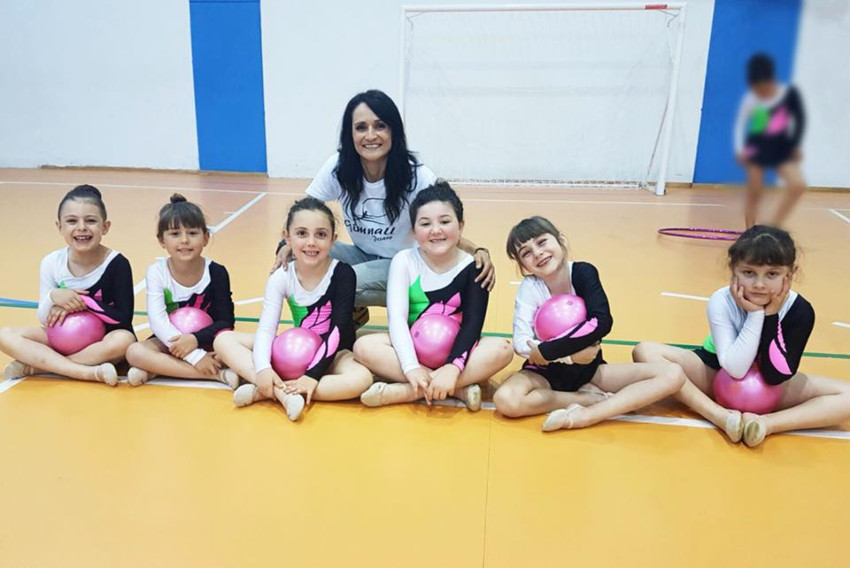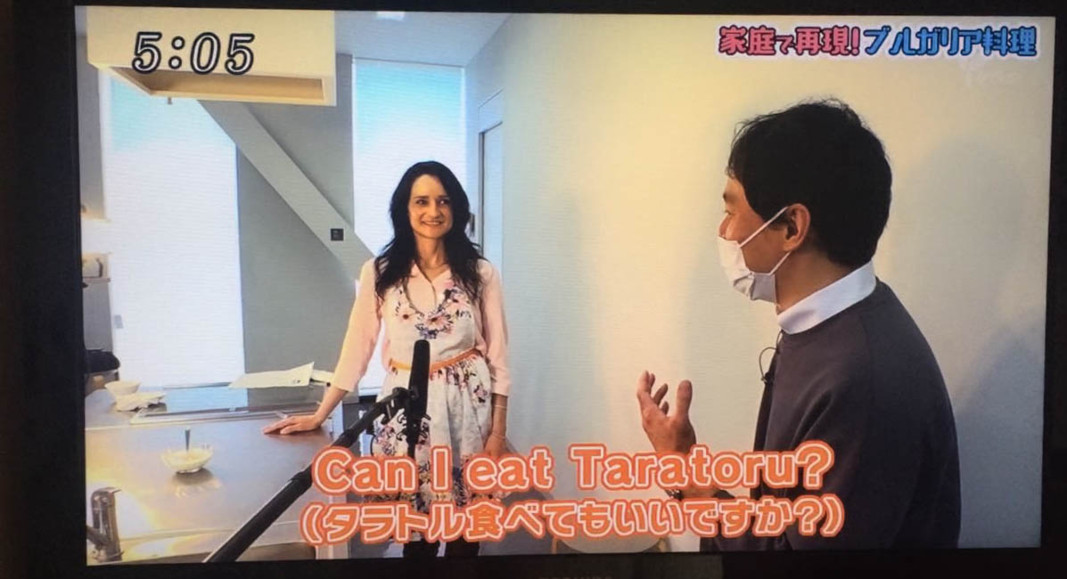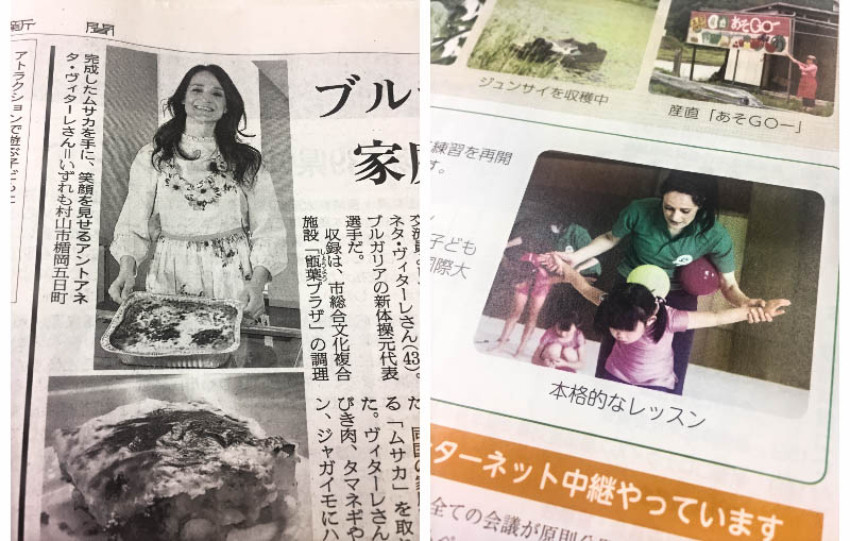Anoaneta Saltova is a former rhythmic gymnastics competitor who played for the sports club Trakia in Plovdiv. She participated in national championships before joining the Bulgarian national rhythmic gymnastics team and in 1993, together with the Bulgarian ensemble, she won a gold and two silver medals at the European Championships in Bucharest. Her career as a gymnast ended at the age of 17. But after graduating with degrees in Bulgarian and French studies from the Plovdiv University, fate took her to Italy.
Today, Antoaneta lives in the Italian town of Sant'Angelo in Vado, together with her husband and their two children. Now she has the name Vitale and works as a rhythmic gymnastics coach at the local sports club. "This year, 23 children train with me, I work with three different age groups. Of course, I teach them according to the Bulgarian methods," Antoaneta says and adds that her work brings her great satisfaction.

The Bulgarian coach in Italy says that she misses her homeland, relatives and friends, and adds:
"I miss Bulgarian cuisine a lot, no matter how strange it might sound in Italy. Italian cuisine is so famous all over the world, but I'm not used to it and I cook Bulgarian dishes. That's why whenever I return from Bulgaria, I bring some local lyutenitsa to Italy," Antoaneta says.
However, life had prepared another surprise for her. In 2019, she received an official invitation from the municipality of Murayama in Japan, host of the camp of the Bulgarian rhythmic gymnastics ensemble for the Olympics.

"They invited me as an adviser and as a mediator between the two cultures. I was a coach of the local rhythmic gymnastics team, I went around schools to promote Bulgarian culture and sports," Antoaneta recalls.

But when Covid-19 restrictions came, life in the city slowed down. This is how the "Cooking with Antoaneta" project was born. "I wanted to show the Japanese the things we Bulgarians eat, as cuisine is part of our cultural identity. We recorded videos for YouTube with 5 Bulgarian recipes", Antoaneta says:

"I prepared moussaka, tarator, chicken soup, stuffed peppers and katmi. I am not sure why but the project caused big interest. Media started shooting every recipe I used and spreading the initiative. That satisfied me as my intention was to promote Bulgaria. There was also a special Japanese event for healthy food and I was invited to cook chicken soup for 60 people. I used Bulgarian yogurt as thickener and the Japanese said that my soup was very healthy," Antoaneta recalls.
See how Antoaneta Vitale prepares Bulgarian chicken soup for the Japanese audience:
After that the municipality asked her to send them a recipe for Bulgarian lyutenitsa, which became such a hit that a local producer started its industrial production.
Despite the postponement of the Olympics in Tokyo, Antoaneta stayed in Murayama for two years. In 2021, she went back to Italy but she says she would like to return to the Land of the Rising Sun to continue promoting Bulgarian culture and sports, which enjoy the respect of the Japanese society.

Antoaneta’s recipe for lyutenitsa:
English version: Al. Markov
Photos: Facebook/Antoaneta Vitale, Dimitra LefterovaTwenty-seven years ago, a Bulgarian mountaineer left his country in the grip of social and economic instability to fulfil a long-held dream. With about $3,000 in his pocket and a backpack, Constantine Zlatev set off for the US to climb one of the..
Anabell Casaboff is one of the thousands of descendants of Bulgarians in Argentina who do not speak the language of their grandparents but Bulgaria is still present in their lives. She is a charming ballerina who dances and teaches..
Mihaela Aroyo is a professional photographer from Varna, Bulgaria. She has no family or close friends who are Bessarabian Bulgarians. But in 2019, after attending a youth festival in a Moldovan village, she was deeply impressed and decided to dedicate..

+359 2 9336 661
